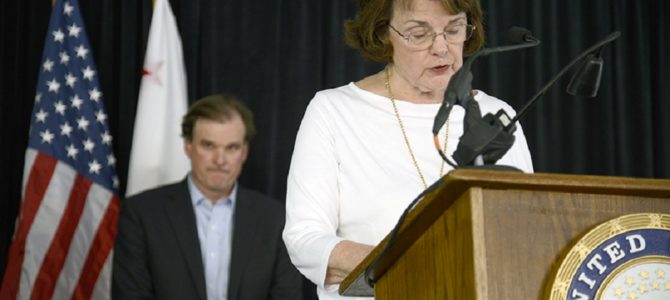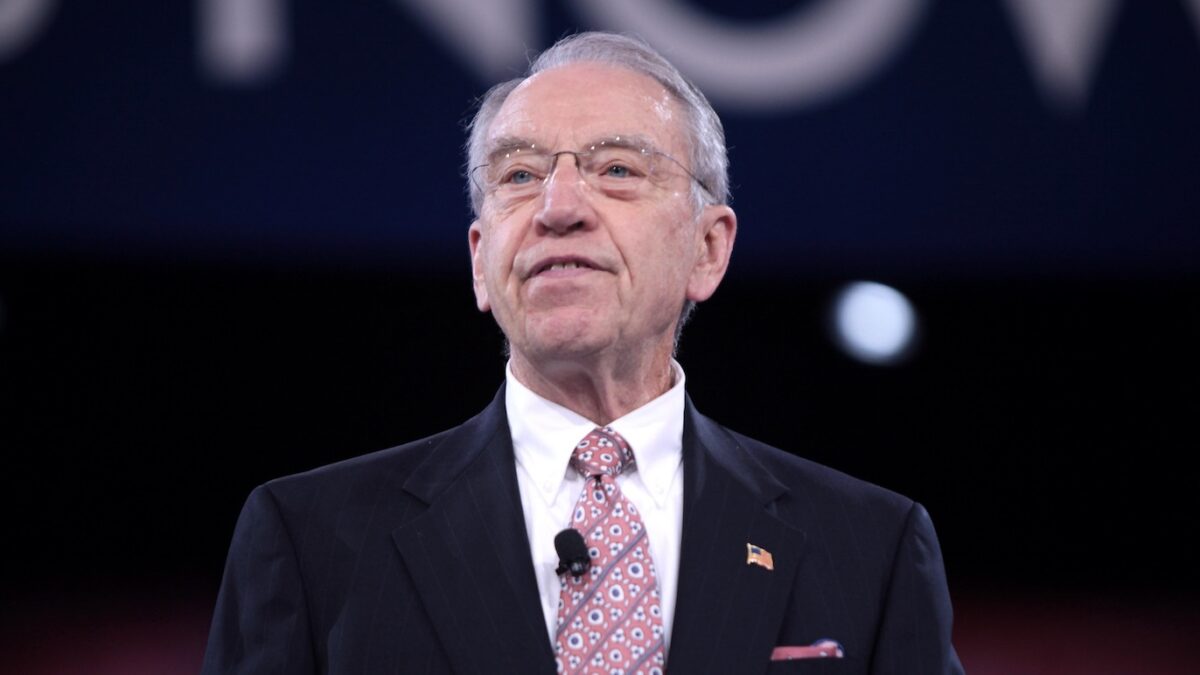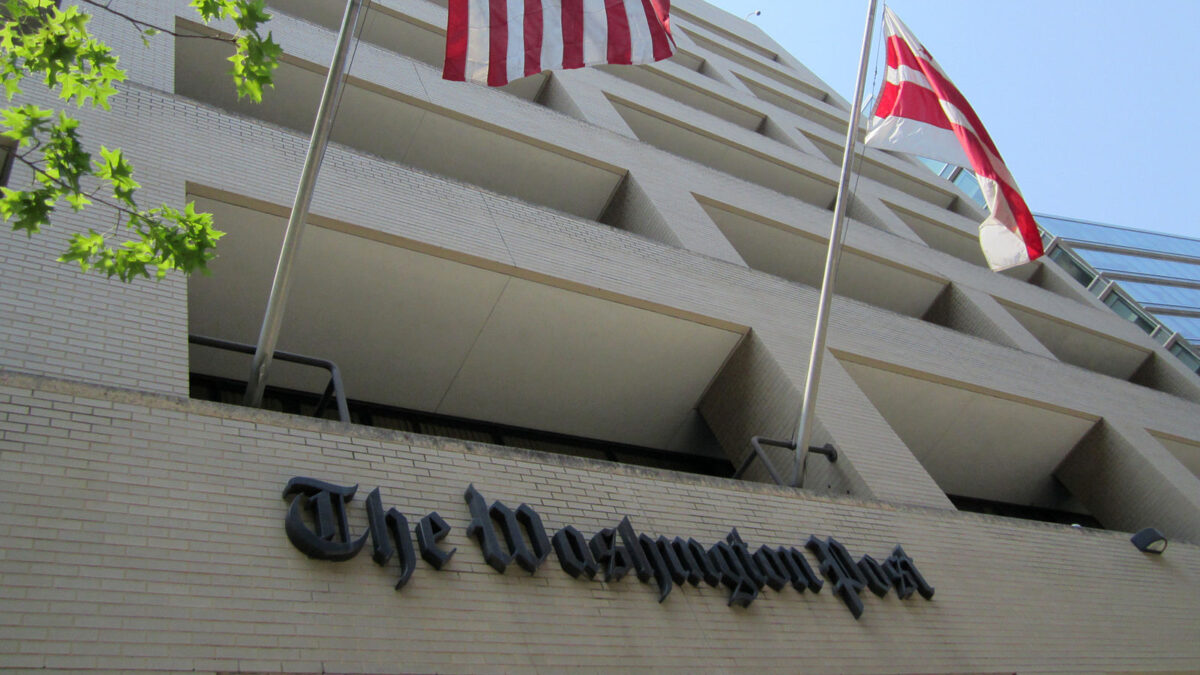
Sen. Dianne Feinstein (D-Calif.) rightly faces a potential scandal for dumping several million dollars’ worth of stock while privy to sensitive information as a member of the Senate Intelligence Committee before a major drop in financial markets due to coronavirus. But the far more consequential story is Feinstein’s participation in the biggest insider trade of all in her family richly profiting from the U.S.-China policy for which she has lobbied for 40 years.
This policy of dramatically expanded economic and political ties between America and China while turning a blind eye to the Chinese Communist Party’s (CCP) tyranny—enabling China to become a world power heavily integrated into global supply chains and international institutions—has contributed to this China-driven pandemic.
A Long History of Friendship with Communists
As detailed in an earlier Federalist exposé spurred by revelations that Feinstein had employed a staffer for nearly two decades who was spying for the Chinese government, arguably no politician in American history has maintained a deeper, more longstanding, and friendlier relationship at the highest levels of the CCP than Feinstein. This dates back to at least the normalization of U.S.-China relations in 1979, when shortly thereafter, as mayor of San Francisco, Feinstein established a “sister city” relationship with Shanghai and Mayor Jiang Zemin.
In the ensuing decades, Feinstein helped dramatically increase commercial ties with China, allowing her husband, investor Richard Blum, to substantially grow his China-related investment profits. In the 1980s, Feinstein and Zemin, the future CCP general secretary and president, worked together to establish corporate partnerships for the express purpose of investing in China.
Blum directed one such partnership, in which he maintained a relatively small financial interest. But while Blum’s investment may have been small, Chinese officials reportedly viewed the partnership most favorably.
In the 1990s as a U.S. senator, Feinstein advocated for increasing trade with China, while de-linking its most-favored-nation (MFN) trading status from concerns over rampant human rights violations, and making it permanent. Notably, in the 1993-1994 period, while Feinstein was advocating for increasing trade and participating in extensive meetings with Chinese leaders in Beijing at then-President Jiang’s invitation with her husband in tow, Blum was seeking to raise up to $150 million for an Asia-focused fund for his firm, Newbridge Capital.
He raised $160 million, and invested in several Chinese state-owned and government-linked businesses. His firm’s largest holding when his China-linked investments began to draw scrutiny in 1997 was Northwest Airlines. It was uniquely positioned to benefit from the increased U.S.-China trade Feinstein was pushing, as the sole airline operator providing nonstop service from the United States to any city in China.
Massive Personal Benefit to Increased U.S.-China Ties
In the 2000s, Feinstein successfully lobbied for a measure granting China permanent MFN status, which paved the way for its accession to the World Trade Organization in 2001. While her husband was at pains to suggest he had divested from his mainland holdings in 1999, in the years leading to the passage of the MFN legislation, his Newbridge Capital firm reportedly invested more than $400 million into East Asian enterprises.
A substantial portion of the companies in which he invested relied on profits from mainland China. Several were partly owned or founded by the Chinese government. In 2004, Newbridge Capital purchased an 18 percent stake in Shenzhen Development Bank, the first time a foreign company took effective control of a Chinese lender.
During her career, Feinstein has also supported the CCP rhetorically. For example, in the early 1980s, Feinstein reportedly asked organizers of San Francisco’s Chinese New Year Parade to stop displaying the flag of the Nationalist Chinese government in Taiwan, which China wishes to subsume, since “she wanted to encourage trade with China.”
In arguing against tying MFN status to human rights, Feinstein sickeningly sought to draw equivalence between political freedom in China and the United States, claiming, “More people in China vote for their leadership on the local level than do Americans.” Worst of all, she extended this moral equivalence to human rights, even going so far as to downplay and alibi the Tiananmen Square massacre. She even compared to Kent State in calling for a joint U.S.-China commission to examine human rights development in the two countries.
Feinstein blocked legislation that would have named a street in front of the Chinese Embassy in Washington, D.C. for Chinese anti-Communist writer and human rights activist Liu Xiabao, who died in state custody. She also objected to the Obama administration’s $6.4 billion arms sale to Taiwan, decrying it as a “substantial irritant” to U.S.-Chinese relations. Feinstein also arranged for discussions with high-level Chinese dignitaries on Capitol Hill, at China’s behest, when in 1996, China conducted menacing missile tests near Taiwan.
Profiting from Destruction and Theft
Throughout, China has cultivated a remarkably close relationship with Feinstein and her husband, reflected in their numerous meetings and her political positions and rhetoric. Given this, it would only make sense that Feinstein repeatedly opposed the single greatest effort to rebalance the economic relationship Feinstein has long supported, and from which her family has profited, in the Trump administration’s tariffs on China.
In the CCP-driven coronavirus pandemic, she has also participated in a CCP propaganda campaign by expressing fears about a wave of racism against Chinese people, while issuing a press release warning of concerns about misinformation—but not of the kind emanating from the CCP.
Feinstein’s story is a microcosm of the story of U.S.-China relations since President Richard Nixon’s 1972 trip there, and a particularly significant one. She is not alone. Others in our political class sought to justify the embrace of China by claiming its economic liberalization would lead to political liberalization, while America’s manufacturing and defense-industrial base was hollowed out, and we were arming it with our technological crown jewels—when it was not stealing them.
Many in the business world have turned the other way or cowered in the face of CCP aggression and repression. Woke Capital deserves particular dishonorable mention for claiming fealty to progressive principles, while increasing investments in the world’s foremost environment-destroying, human rights imperiling, authoritarian power.
Many in corporate media have gladly run Chinese propaganda posing as legitimate news to make a buck, or score political points. Many in our schools have permitted Trojan horse Confucius Institutes to proliferate, while accepting hundreds of millions of dollars from the Chinese government as it pilfers and pays for critical research and other assets.
Indeed, we have made a whole-society trade, led by our political establishment under the banner of globalism, for profits and cheap goods in the relatively short run in exchange for our liberty, sovereignty, and civil society in the long run. That we are living in an age where a person eating a bat in a Wuhan wet market a world away could shut down American life, with the CCP threatening to cut off our access to essential medical supplies, is a direct consequence of all this.









